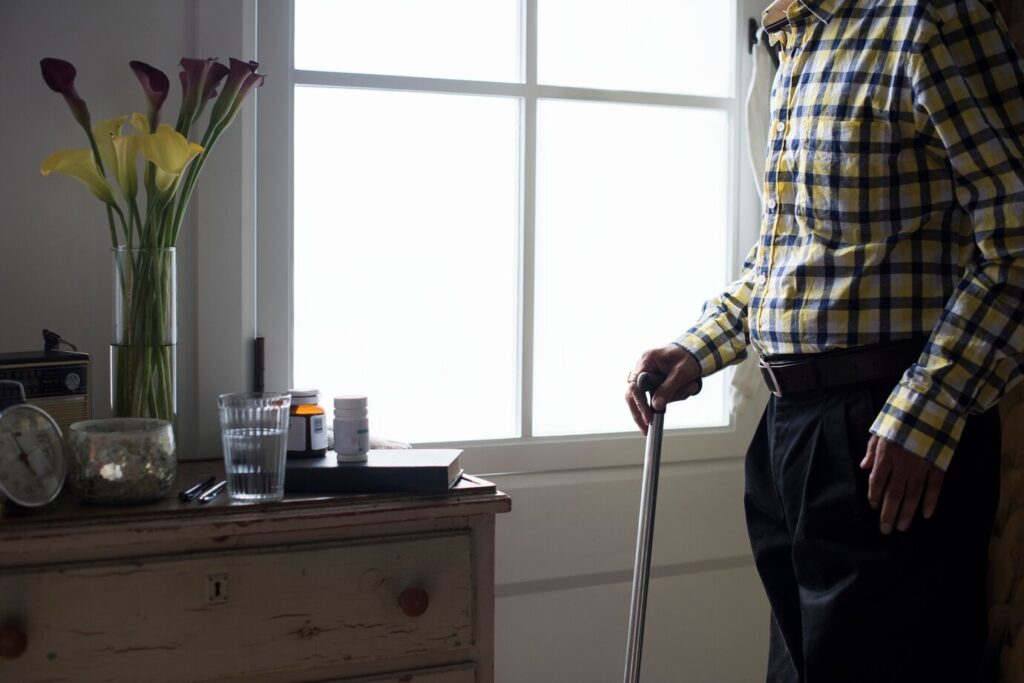Helping a Dementia Patient Adjust to Assisted Living
Making the transition to assisted living is a significant life change for anyone, but when it involves a dementia patient, the process becomes significantly more delicate. Whether you’re caring for a parent with dementia at home or exploring free care for dementia patients, knowing how to support your loved one through this change is crucial.
Our compassionate approach at Valley Spring Memory Care helps ensure a smooth transition. From understanding their emotional responses to encouraging trust with caregivers, we’re here every step of the way. Let’s explore how you can help a dementia patient adjust to this new chapter in their life.
Understanding the Adjustment Process for Dementia Patients
When a dementia patient transitions to assisted living, the new setting, caregivers, and routines can create confusion and anxiety. It is critical to recognize the unique challenges they face. Encouraging familiar social dynamics, establishing trust, and maintaining regular family visits can ease the transition.
By setting up consistent daily routines, you can help patients orient themselves more quickly. When combined with compassion and consistent care, these steps lay the foundation for a successful adjustment.
Factors Influencing Adjustment Time
Each dementia patient is different, and their adjustment time will depend on various personal and clinical factors. Among the most significant are their stage of dementia and their unique personality.
Stage of Dementia
Patients in the early stages may still retain some independence, which helps with adaptation. In contrast, those in later stages may struggle more with new environments. Understanding the level of care needed, as explained in this guide on care levels, is vital for a smooth transition.
When learning how to deal with dementia patients who are aggressive, it’s often tied to later stages, where anxiety and confusion become more pronounced. A calm, patient approach helps minimize distress.
Personality and History
Every individual brings a history that shapes how they react to change. An extroverted dementia patient might adjust faster than someone introverted. Similarly, someone with stable caregiving at home might initially find the shift jarring.
Care teams should consider personal backgrounds when developing care plans. For example, incorporating music or books that reflect the individual’s past can create comforting familiarity. Tailored care strategies can help caregivers meet emotional and psychological needs.
Creating a Familiar Environment
Making assisted living feel like home is key to easing the adjustment. Personal items like blankets, pictures, or books can ground a dementia patient in something familiar. This environment helps soothe feelings of displacement.
We recommend involving family in the room setup. This provides emotional support and gives the patient recognizable anchors in their new space. At Valley Spring, personalized care plans help residents feel seen and understood.

Establishing Routine and Consistency
Predictable routines play a big role in comfort. Meals, walks, rest periods, and activities should happen at roughly the exact times each day. This stability can reduce anxiety and support cognitive function.
If you’re caring for a parent with dementia at home, you likely understand the power of routine. Assisted living routines offer that same familiarity, helping dementia patients feel grounded. However, flexibility is still important. Daily routines should be adjusted based on individual moods and health conditions.
Building Trust With Caregivers
Once the basic routine is set, building trust with new caregivers becomes the next challenge. Caregivers for dementia patients at home may already have established deep connections—assisted living staff work hard to replicate that level of trust.
Caregivers focus on learning each resident’s preferences and needs. Family visits reinforce stability and familiarity. Over time, residents feel more secure, making the facility feel like a second home.
Addressing Emotional and Psychological Needs
Adjusting to assisted living is emotionally taxing. Patients may experience fear, anger, or sadness. This is where learning how to deal with dementia patients who are aggressive becomes valuable. Aggression is often a sign of fear or discomfort.
Empathy, validation, and non-verbal reassurances go a long way in managing emotional responses. Staff trained in dementia care are equipped to manage these behaviors and offer emotional support.
Managing Anxiety and Confusion
A calm, quiet setting is ideal for managing anxiety and confusion in a dementia patient. Reduce noise, provide familiar music, and ensure consistent lighting. Predictability and reassurance are critical.
Avoiding triggers is key—this is especially helpful when caring for a parent with dementia at home or in a facility. Observing patterns in behavior can alert caregivers to stress points.
Engaging in Therapeutic Activities
Participation in engaging activities helps reduce anxiety and boredom. We offer art therapy, music, and memory games at Valley Spring. These aren’t just distractions—they’re tools for healing.
Encouraging fun questions to ask dementia patients, such as “What was your favorite meal growing up?” or “Do you remember your first pet?” can stimulate memory and build an emotional connection.
Resources and Support Options
Caring for someone with dementia can be overwhelming. Fortunately, several services offer free care for dementia patients, such as state programs, nonprofit organizations, and grants.
Even if you’re utilizing caregivers for dementia patients at home, respite services can provide essential breaks. For more details on available resources, visit trusted sites like the Alzheimer’s Association or the National Institute on Aging.
If you’re local, we’d love to show you how Valley Spring Memory Care supports residents and families. Contact us directly to explore how our memory care can fit your needs.
Guiding a Loved One Into Comfort and Care
Supporting a dementia patient through this life change is an act of deep love and patience. The process may not be easy, but your loved one can thrive with consistent routines, emotional support, and the right resources.
Whether you’re wondering how to deal with dementia patients who are aggressive, looking for free care for dementia patients, or seeking guidance while caring for a parent with dementia at home, know that support is available.
To speak with a care advisor or learn more, call us at 209-710-4783 or schedule a tour.
Frequently Asked Questions
What is the life expectancy of a person with dementia?
Life expectancy after a dementia diagnosis varies depending on the type and stage of dementia, overall health, and age of the individual. On average, people live about 4 to 8 years after diagnosis, though some may live as long as 20 years. Early detection and quality care can help manage symptoms and improve quality of life. Working closely with healthcare providers to create a care plan is important.
What to do for someone with dementia?
Providing support for someone with dementia involves ensuring safety, maintaining routines, and offering emotional and cognitive engagement. Help with daily tasks, encourage social interaction, and consider memory aids like labels and calendars. It’s also important to practice patience and avoid correcting or arguing, as this can cause confusion or distress. Professional help, such as in-home care or support groups, can be valuable resources.
Can a dementia patient live at home?
Yes, many dementia patients can live at home, especially in the early to mid-stages of the condition. The home environment can remain manageable with proper planning, support, and safety modifications. Family caregivers or hired professionals may assist with personal care, medication, and supervision. Over time, as the disease progresses, additional care or transitioning to a memory care facility may become necessary.
What to expect from dementia patients?
Dementia patients often experience memory loss, confusion, mood swings, and difficulty with communication and daily tasks. As the disease progresses, these symptoms typically become more severe, leading to increased dependence on others. Behavioral changes, such as aggression or withdrawal, may also occur. Understanding these changes as part of the condition can help caregivers respond with empathy and support.






